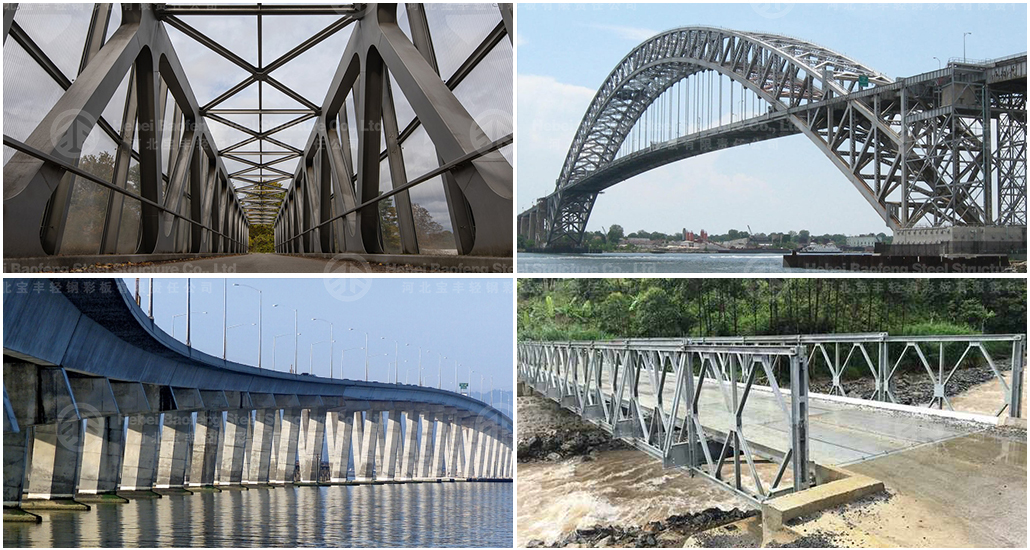
Why Are Steel Metal Materials Great For Bridge?
Steel is widely regarded as an exceptional material for constructing bridges due to its unique combination of properties, which address both structural demands and practical considerations. Here’s a breakdown of why steel stands out:
1. Exceptional Strength
High Tensile & Compressive Strength: Steel resists both stretching (tension) and crushing (compression), making it ideal for handling heavy loads like vehicles, trains, and wind forces.
Strength-to-Weight Ratio: Its high strength relative to weight allows longer spans and taller structures without excessive material use, reducing foundation costs.
2. Durability & Corrosion Resistance
Longevity: When protected (e.g., galvanized, painted, or using stainless steel), steel withstands harsh environments, including moisture and saltwater. Modern coatings extend lifespan decades.
Maintenance: Regular inspections and proactive coatings ensure sustained performance, even in extreme climates.
3. Design Flexibility
Versatile Shapes: Steel can be rolled, welded, or cast into beams, arches, cables, or trusses, enabling innovative designs (e.g., suspension bridges like the Golden Gate).
Adaptability: Easily modified or reinforced during upgrades or repairs.
4. Cost-Effectiveness
Prefabrication: Components are often pre-made off-site, speeding construction and minimizing disruptions.
Recyclability: At end-of-life, steel can be repurposed, reducing waste and supporting sustainable practices.
5. Load-Bearing Efficiency
Long Spans: Steel’s strength enables bridges to cross wide waterways or valleys without intermediate supports, which is critical for infrastructure projects.
Dynamic Load Resistance: Absorbs vibrations from traffic, wind, or earthquakes through flexibility, enhancing safety in seismic zones.
6. Fire Resistance
While steel loses strength at high temperatures, modern fireproof coatings (e.g., intumescent paints) protect it, often surpassing untreated concrete in fire performance.
7. Sustainability
Steel’s recyclability (up to 90% recycled content in new bridges) aligns with eco-friendly construction trends, reducing resource depletion.
Historical & Practical Context
Steel has been pivotal since the Industrial Revolution, enabling iconic structures like the Brooklyn Bridge. Its balance of performance, adaptability, and economic viability cements it as a top choice for modern bridge engineering.

Categories
latest blog
Tags